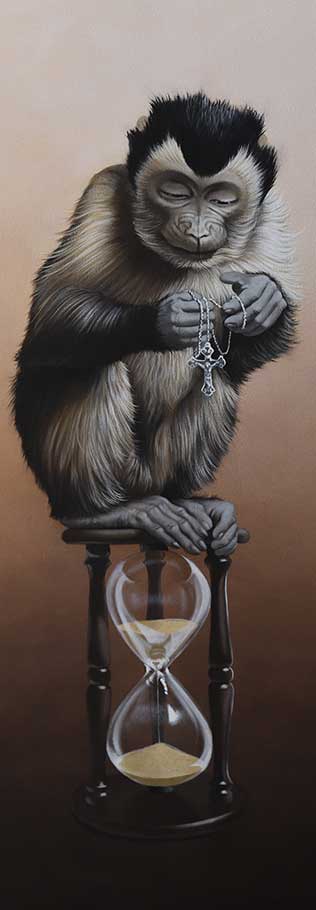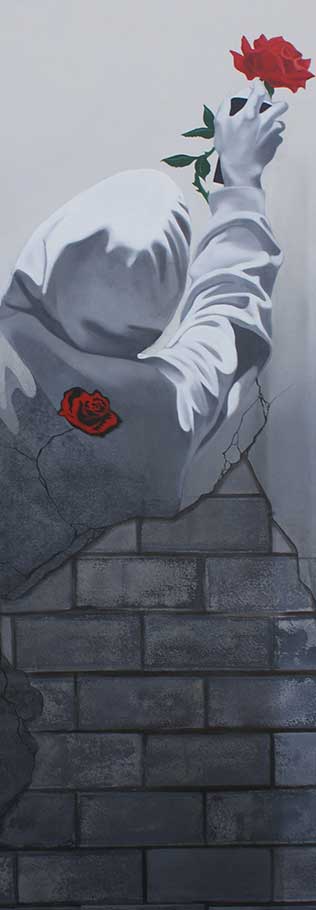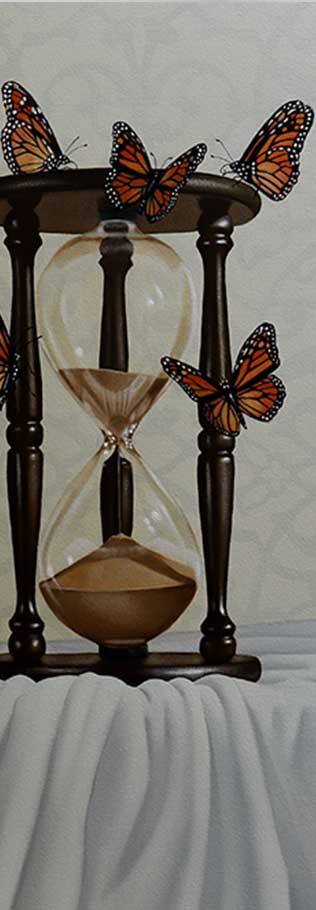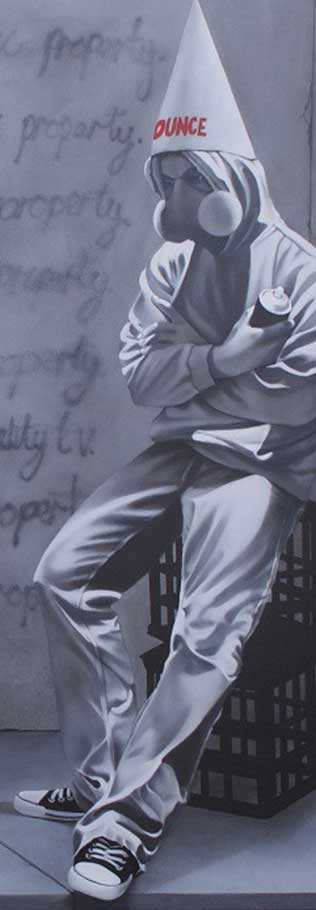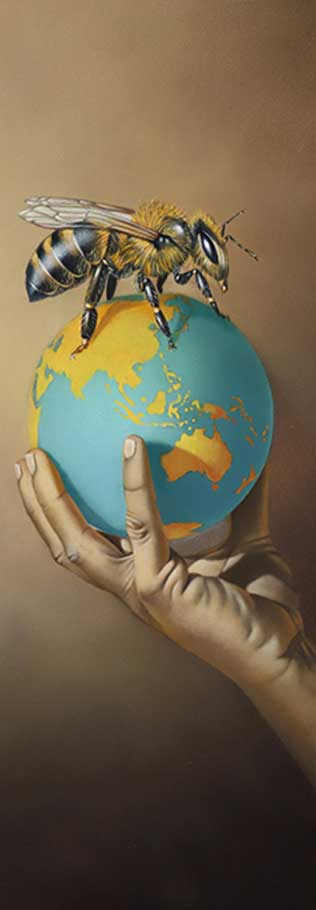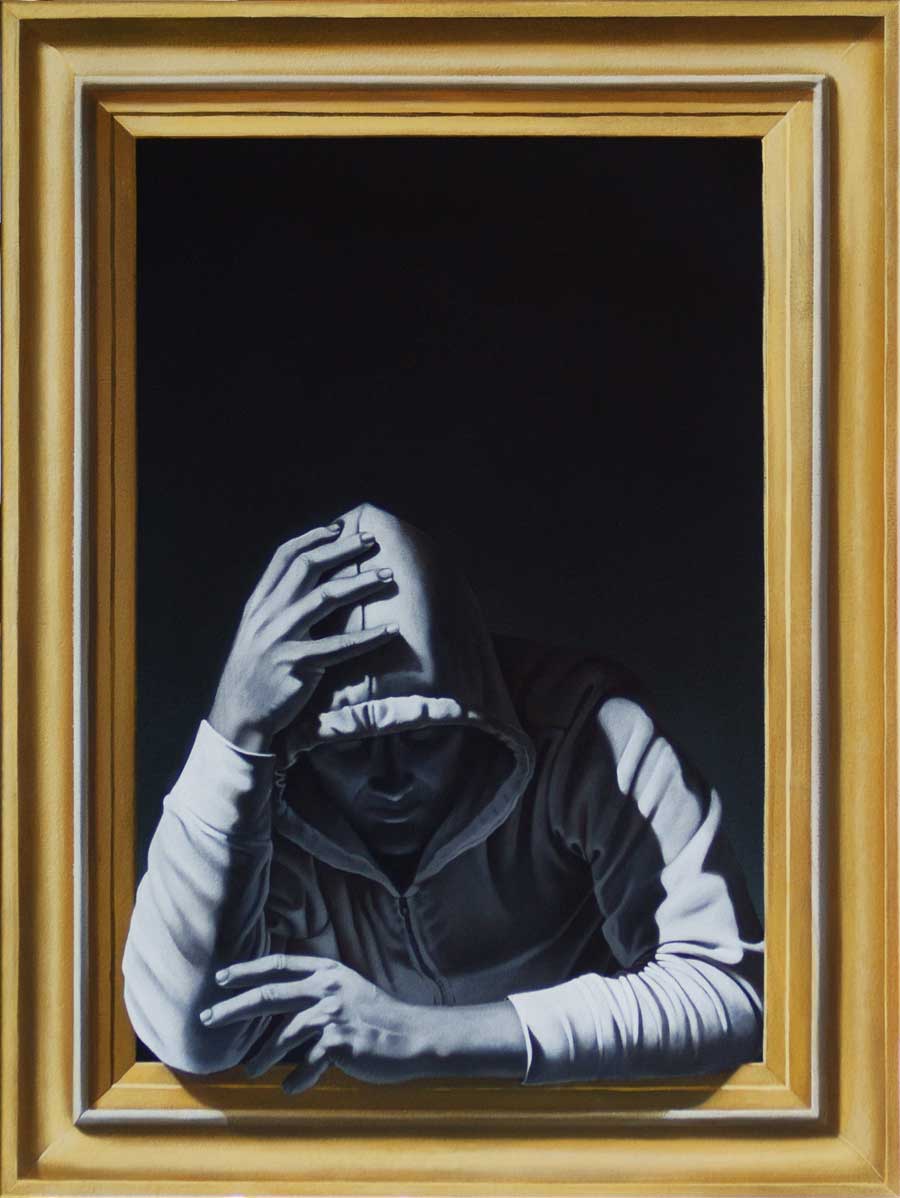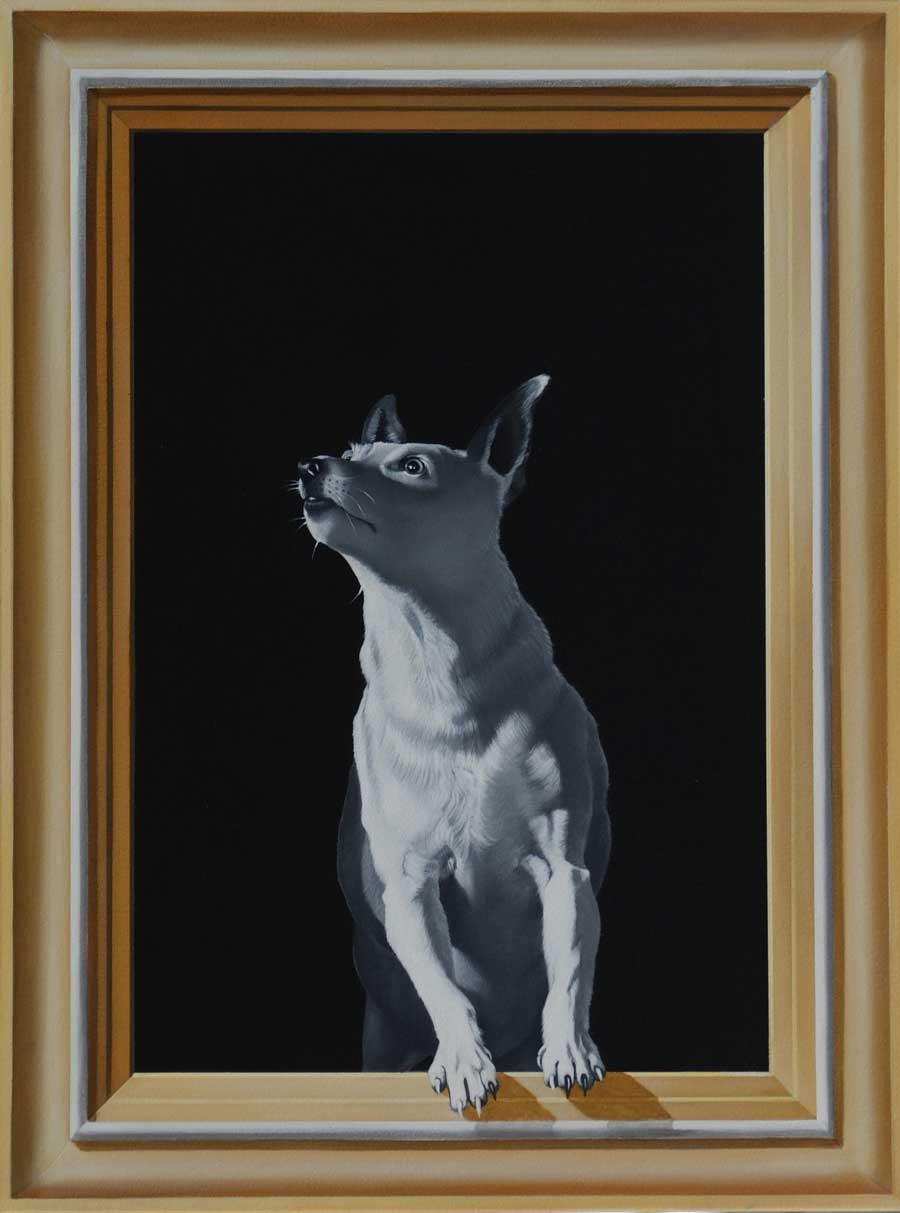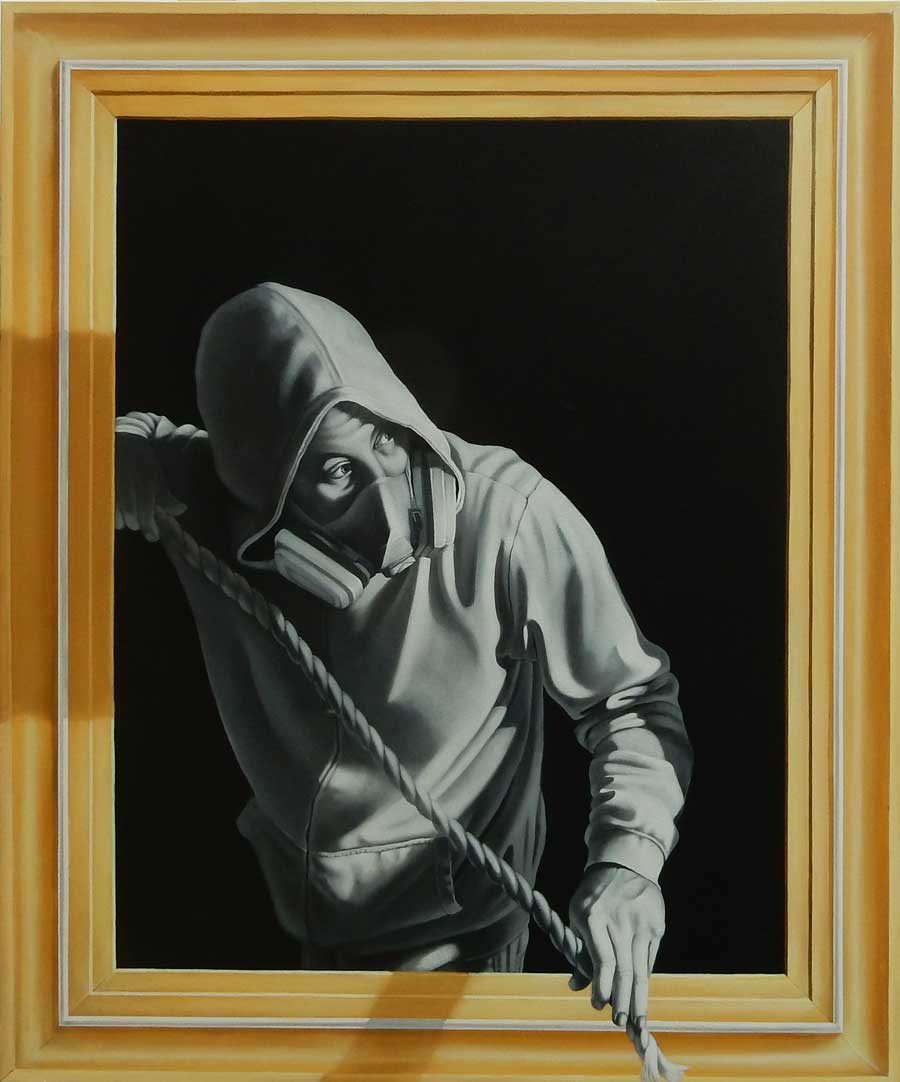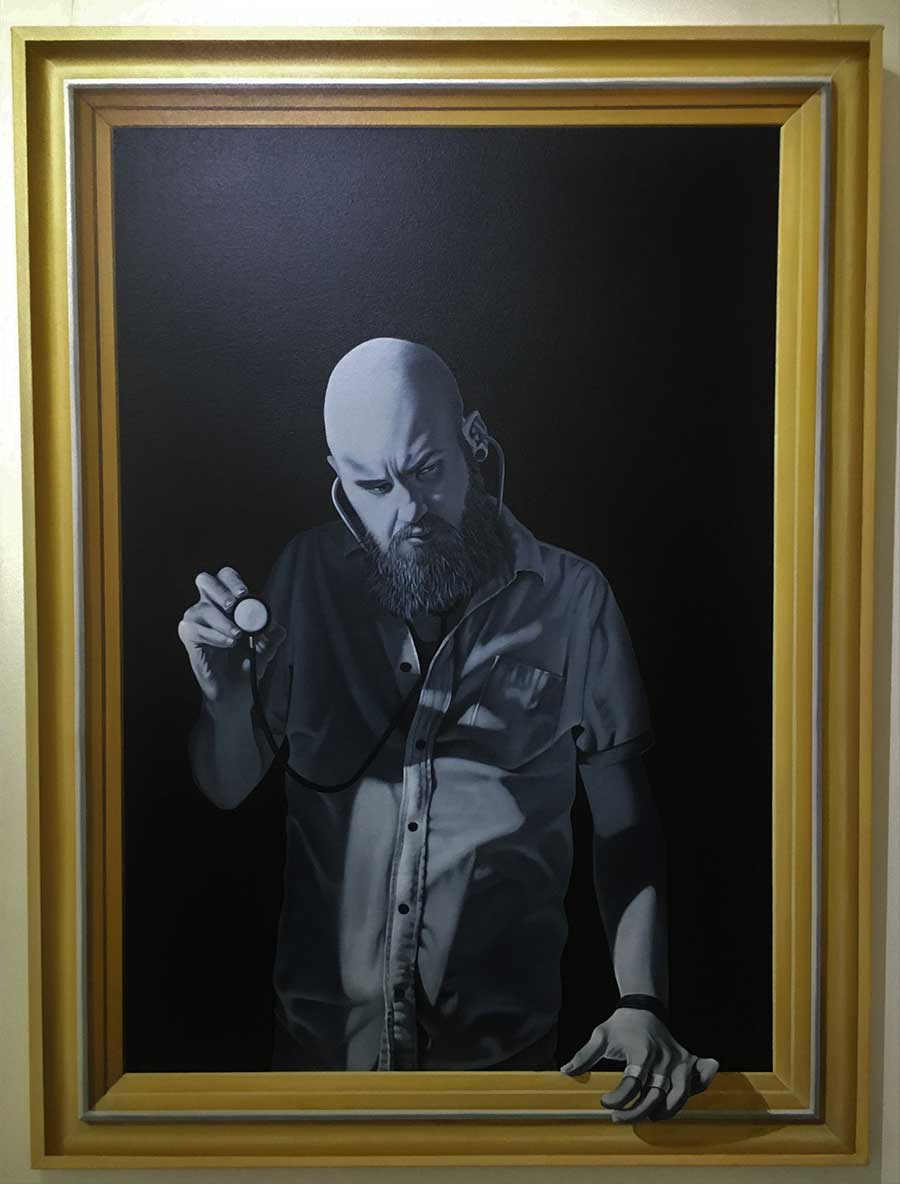Critical Escape
Exploring the Plight of the Street Artist
The work Critical Escape (after Borrell) is a reinterpretation of Pere Borrell del Caso’s Escaping Criticism (1874). Using the technique of Trompe-l’oeil, Borrell created an optical illusion depicting a young boy climbing out of the picture frame. It is said the work was a reaction to the conservative art critics of his day. To give Shannon’s work a contemporary context, he has replaced the boy with a respirator wearing street artist, who is at times also a victim of a conservative mentality. The simplicity of Borrell’s concept and the effectiveness of its execution resonated with Shannon. This series explores the plight the street artist. Shannon instantly thought of Borrell’s work as a perfect allegory for this theme.
The Critical Escape series consists of figurative paintings exploring the concept of “Escapism”. The work in this collection demonstrates both literal and metaphoric interpretation of this concept. Using the method of Trompe l’oeil, Shannon redefines the boundaries between fictitious space and reality. This creates a paradox between the work and the definition of “Escapism”.
With the street artist as muse, the work explores social and political themes. The key elements of the work is the use of symbolism, dramatic lighting and a monochromatic palette.

